Scale up your practice for the Critical Thinking Assessment Test with our updated Critical Thinking Assessment Practice Test Pack, which covers all the sections on the actual exams. This book provides valuable insights into what to expect and will be of great help in helping you develop effective study strategies. Kick off your preparation with our Critical Thinking Assessment Practice Test
With detailed step-by-step explanations on every question, and hints on how to solve them faster.
About Critical Thinking Assessment Practice Test
An inductive reasoning test measures the abilities and skills that are relevant to solving problems. They may also be referred to as abstract reasoning tests or diagrammatic style tests. These tests measure the ability to work flexibly with unfamiliar information and find solutions.
What to expect:
Critical thinking is used in several stages of the problem-solving and decision-making process. They include;
- Defining the problem.
- Selecting the relevant information to solve the problem.
- Recognizing the assumptions that are both written and implied in the text.
- Creating hypotheses and selecting the most relevant and credible solutions.
Free Critical Thinking Assessment Practice Test Sample Questions
Statement 1 – Underlying Assumptions
Wife to Husband: Our joint income is lower than it could be. But soon I will begin to work an additional part-time job and I will earn extra income.
Proposed Assumption: Asking for a raise at her current place of work is not the best way to increase the wife’s income.
A. Assumption made
B. Assumption not made
The correct answer is (B), Assumption not made.
Explanation:
The conclusion of the wife’s statement: Soon we will increase our joint income.
The evidence supporting this conclusion: I will begin to work an additional part-time job.
The underlying assumption/s that must be true for the conclusion to be true: A part-time job will provide me with extra money.
The proposed assumption: “Asking for a raise at her current place of work is not the best way to increase the wife’s income” is not necessary for the conclusion to be true.
Statement 2 – Interpreting Information
Several years ago, Harold and his wife adopted a two-year-old orphan named Betty. Today, Betty is an undergraduate student, living far away from home. Harold feels unhappy and misses Betty tremendously. He would like her to come home more often.
Proposed Assumption: Harold’s wife doesn’t feel unhappy.
A. Conclusion follows
B. Conclusion does not follow
The correct answer is (B), Conclusion does not follow.
Explanation: Harold’s wife is not mentioned in the passage, and, therefore, you cannot presume any information regarding her feelings.
Scenario 3 – Inferences
Following a reduction in the number of applicants, the college has been asking students to evaluate faculty teaching performance for the last two years. The college’s management announced that the purpose of these evaluations is to give information to faculty about teachers’ strengths and weaknesses, and to allow those who make decisions about pay raises and promotions to reward the better teachers. Last week, Professor Burke, a recently retired senior lecturer at the college, wrote a letter in which he objected to these evaluations, claiming they compromise academic standards.
Proposed Assumption: There is more to the management’s announced intentions than those mentioned by them in the passage.
A. True
B. Probably true
C. Insufficient data
D. False
E. Probably false
The correct answer is (B), Probably true.
Explanation: The text begins by introducing the management’s announcement as a reaction to a negative trend—reduction in the number of student applications. While the announcement explicitly addresses both the college’s staff and its students, it is likely that the issue at hand is not only a wish to achieve academic excellence but, in fact, a means to resolve the issue of reduced applications and college reputation, which has implications on the college’s future. Therefore, the correct answer is probably true.
Statement 4
The Department for Education should lower standards in examinations to make it fairer for less able students.
Yes – top grades are too hard for lower-income students
No – less fortunate students are not capable of higher standards
Yes – making the standards lower will benefit all students
No – private school students will suffer if grade standards are lower
Explanation
The strongest argument is the right answer, not the one that you might personally believe.
In this case, we need to assess which argument is most relevant to the statement. Both 1 and 4 refer to students in particular situations, which isn’t relevant to the statement. The same can be said about 2, so the strongest argument is 3, since it is relevant and addresses the statement given.
Statement 5
The British Museum has a range of artefacts on display, including the largest privately owned collection of WWII weaponry.
Conclusion
There is a larger privately owned collection of WWII weaponry in the USA.
Conclusion Follows
Conclusion Does Not Follow
Answer: Conclusion Does Not Follow
Explanation
The fact that the collection is in the British Museum does not make a difference to the fact it is the largest private collection – so there cannot be a larger collection elsewhere.
Statement 7
All boys love football. Football is a sport, therefore:
All boys love all sports
Girls do not love football
Boys are more likely to choose to play football than any other sport
In this section, we are looking for a conclusion that follows the logic of the statement. In this example, we cannot deduce that girls do not love football, because there is not enough information to support that.
Answer: Boys are more likely to choose to play football than any other sport
Explanation
In the same way the conclusion that all boys love all sports does not follow – we are not given enough information to make that assumption. So, the conclusion that follows is 3: boys are more likely to choose football than any other sport because all boys like football.

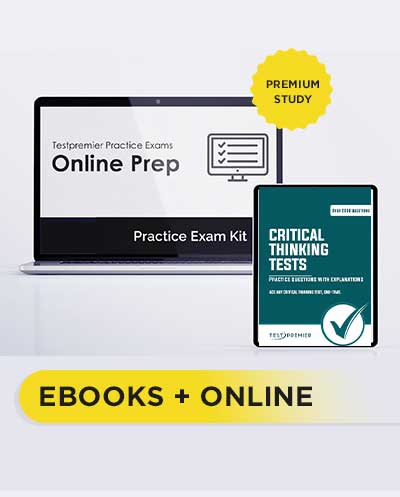
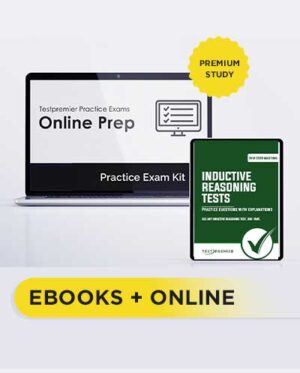
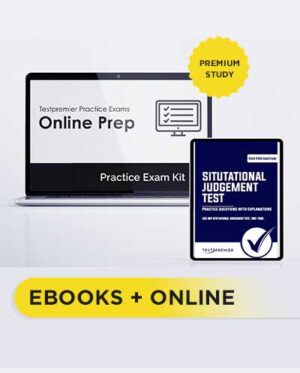
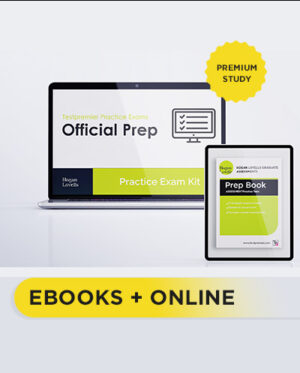
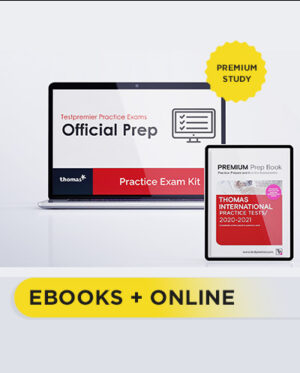
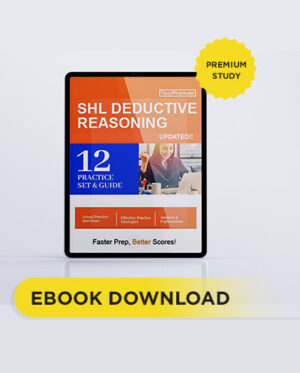
Reviews
There are no reviews yet.